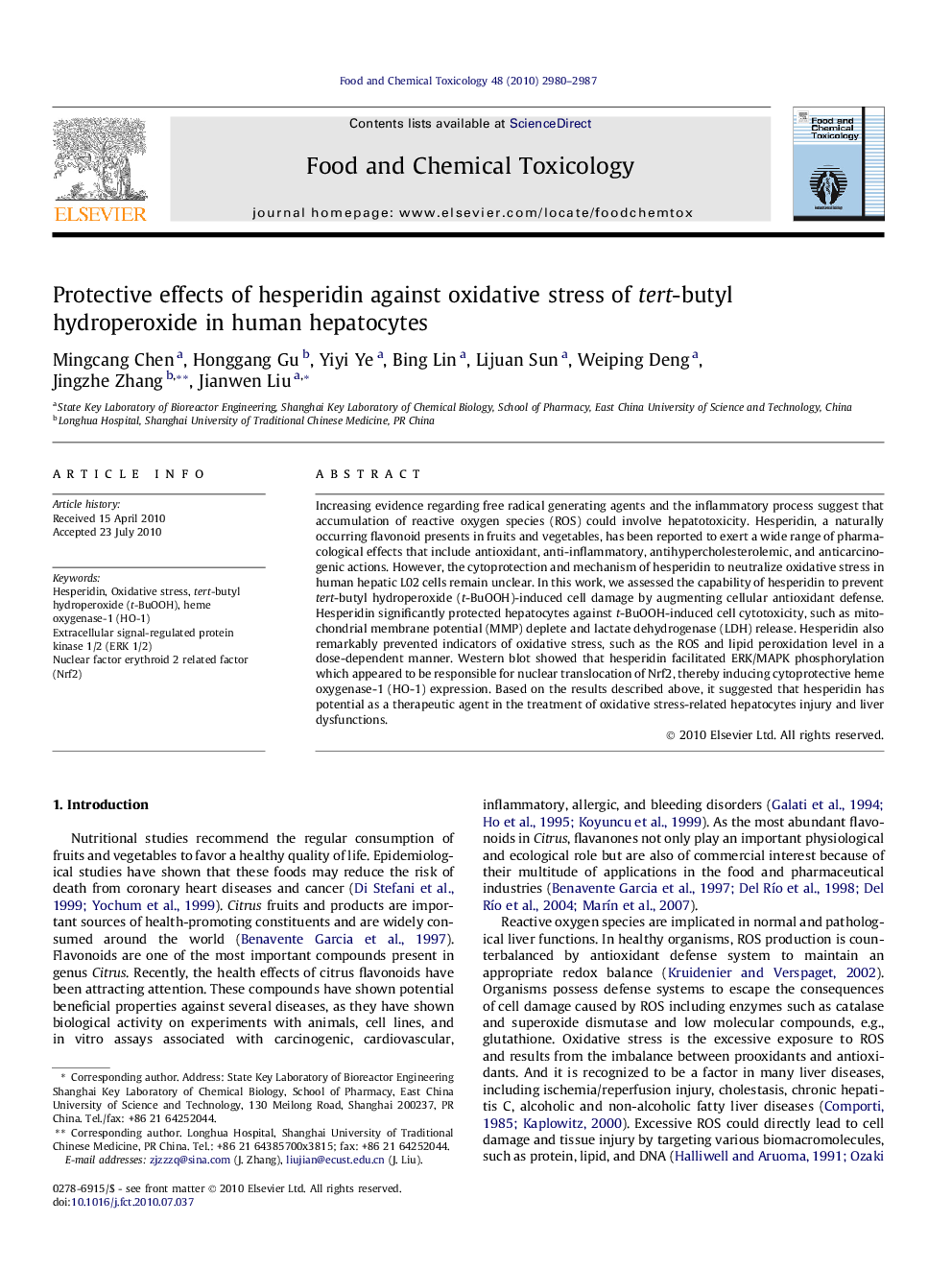| کد مقاله | کد نشریه | سال انتشار | مقاله انگلیسی | نسخه تمام متن |
|---|---|---|---|---|
| 2585618 | 1130876 | 2010 | 8 صفحه PDF | دانلود رایگان |

Increasing evidence regarding free radical generating agents and the inflammatory process suggest that accumulation of reactive oxygen species (ROS) could involve hepatotoxicity. Hesperidin, a naturally occurring flavonoid presents in fruits and vegetables, has been reported to exert a wide range of pharmacological effects that include antioxidant, anti-inflammatory, antihypercholesterolemic, and anticarcinogenic actions. However, the cytoprotection and mechanism of hesperidin to neutralize oxidative stress in human hepatic L02 cells remain unclear. In this work, we assessed the capability of hesperidin to prevent tert-butyl hydroperoxide (t-BuOOH)-induced cell damage by augmenting cellular antioxidant defense. Hesperidin significantly protected hepatocytes against t-BuOOH-induced cell cytotoxicity, such as mitochondrial membrane potential (MMP) deplete and lactate dehydrogenase (LDH) release. Hesperidin also remarkably prevented indicators of oxidative stress, such as the ROS and lipid peroxidation level in a dose-dependent manner. Western blot showed that hesperidin facilitated ERK/MAPK phosphorylation which appeared to be responsible for nuclear translocation of Nrf2, thereby inducing cytoprotective heme oxygenase-1 (HO-1) expression. Based on the results described above, it suggested that hesperidin has potential as a therapeutic agent in the treatment of oxidative stress-related hepatocytes injury and liver dysfunctions.
Journal: Food and Chemical Toxicology - Volume 48, Issue 10, October 2010, Pages 2980–2987